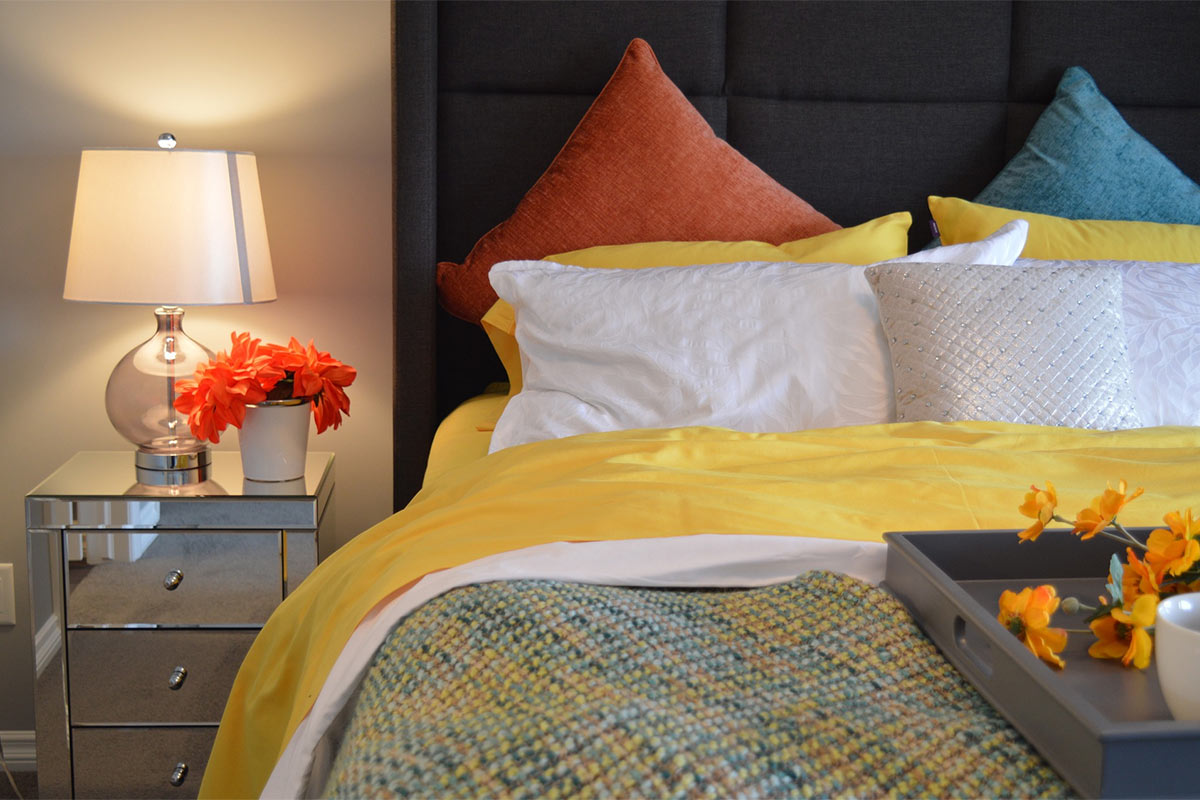
Changing Your Bedroom Into the Perfect Dream Haven
Most of us have a bedroom. That’s normal. Unfortunately, it’s also normal to hear people complaining of sleep-related problems: being tired or foggy during the day, not being able to get to sleep at night, waking up restless in the night several times. The list goes on.
In some cases, this could be indicative of a serious neurological or physical problem. More often than not, though, sleep-related problems are actually caused by something simple and easily fixable. That’s what we’re going to look at today.
We’ve taken all of the best ideas and well-studied tips for turning your bedroom from a simple sleeping room into a haven that supports somnolence and having a good rest.
If you follow all of these tips in your own way, you’ll not only find yourself well-rested at night, but you’ll find that your room has become something like an extension of your personality.
It’ll be more comfortable to be in, and you’ll feel more like yourself in turn.
Get a comfortable mattress
A lot of people don’t recognize the importance of a comfortable mattress and spend their whole lives sleeping on beds that are only passably comfortable.
These people are also often more prone to being lethargic during the day, to waking up with unexplained muscle soreness or cramps, and for having a difficult time falling or remaining asleep.
Your best option is to choose the best mattress brand that’s tailored specifically to you, such as an orthopedic or chiropractic mattress. These will conform to your shape and weight and will provide you with the best quality of sleep possible.
- The pillows and fabrics that you use on your bed are almost as important as the bed itself!
- If you don’t have good pillows, you’ll probably find yourself getting some unpleasant neck cramps once in a while. Furthermore, pillows that don’t suit you can make it hard to fall asleep.The goal of a good pillow is to support your neck, so if you don’t think you’re getting enough support, you might investigate getting a fluffier pillow. Memory foam pillows are fantastic – and, in my own opinion, better than memory foam beds because they’re only supporting a small fraction of your weight. I feel that the weight distribution on memory foam beds doesn’t always result in the healthiest sleeping posture.
- The fabrics that you use for your blankets and sheets can really be a contributing factor to your overall comfort. I know that when I slide into bed with my silk blanket I feel a lot more ‘floaty’ and dreamy than I do when I’m pulling a big duvet over my head. However, using the duvet makes me feel more secure and nested. Different strokes for different folks!
Shut off the lights!
Or, rather, eliminate any sources of light in your bedroom. This is of extreme importance because humans operate on what’s known as the circadian rhythm, which is basically a biological process that regulates our sleep and wake cycles.
This cycle is based off the rising and the setting of the sun, and not following our circadian rhythm can really throw us off. It’s actually freakishly unhealthy to rise before the sun every day, like most people do for work, but that’s for another article.
Since humans have only had inside lights for a couple hundred years (candlelight is natural and doesn’t have nearly as profound of a negative impact on our sleep/wake cycle) we haven’t been able to evolve beyond our body’s instincts.
If you have light in your room – any sort of light, be it from a television, your computer, or just a lamp – then it’s going to be harder for you to get to sleep.
Good solutions to this problem are night masks, which I’d recommend, or blinds that completely shut out exterior light. These can be useful for people who work night shifts and need to sleep in the day.
Clean it up!
While it may not seem obvious, having a room that’s extremely cluttered can actually have a negative impact on your ability to get to sleep.
Your external environment is a reflection of what’s going on inside of your mind, and if you have a messy sleeping space, you’re not going to have a very clean mind.
This can be observed if you find your thoughts racing at night, which is a common condition that leads to insomnia. If you imagine each thought as a small knick knack in your unorganized room, you can see through analogy why it’s wise to keep a clean sleeping space at night.
Add some colour!
The science of feng shui, whether or not you believe in it, is very important for keeping your sleeping space comfortable.
(Unfortunately, belief is necessary for feng shui’s effects to be apparent, so if you don’t believe in it you can skip this step and enjoy the chaotic colours that are most likely running rampant in your sleeping space!)
Cooler colours like gray, soft greens, dark blue and violet exist at spectral frequencies that cause your brain to release calming neurotransmitters. This is in stark contrast to more energetic colours like bright reds and yellows, which can be extremely stimulating and can make it difficult to fall asleep.
Deodorize!
There are some scents that are known to produce relaxing effects. If you decorate your room with some aromatics, like scented candles or incense sticks, then you’ll probably find it easier to wind down at the end of the day and fall asleep once your head hits the pillow.
Lavender and chamomile are among the most powerful scents for helping people fall asleep. Lavender is such a powerful relaxant that many people have reported calming effects simply from smelling a bottle of the essential oil.
In conclusion
Your bedroom should be more than just a room with a bad in it. It should be a haven that provides you with relaxation, comfort, and relief from stress. Sure, you might need to make a few changes to transform your bedroom into a haven – but the changes you make will surely leave you with a positive result.
By Kate Corr, The Founder of Best Mattress Expert, a blog dedicated to helping people choose the best mattress brand.

